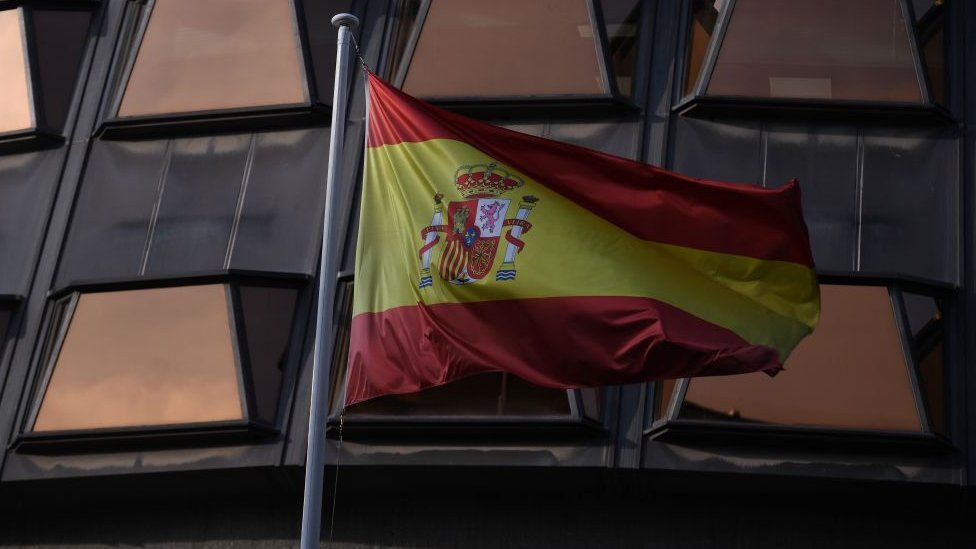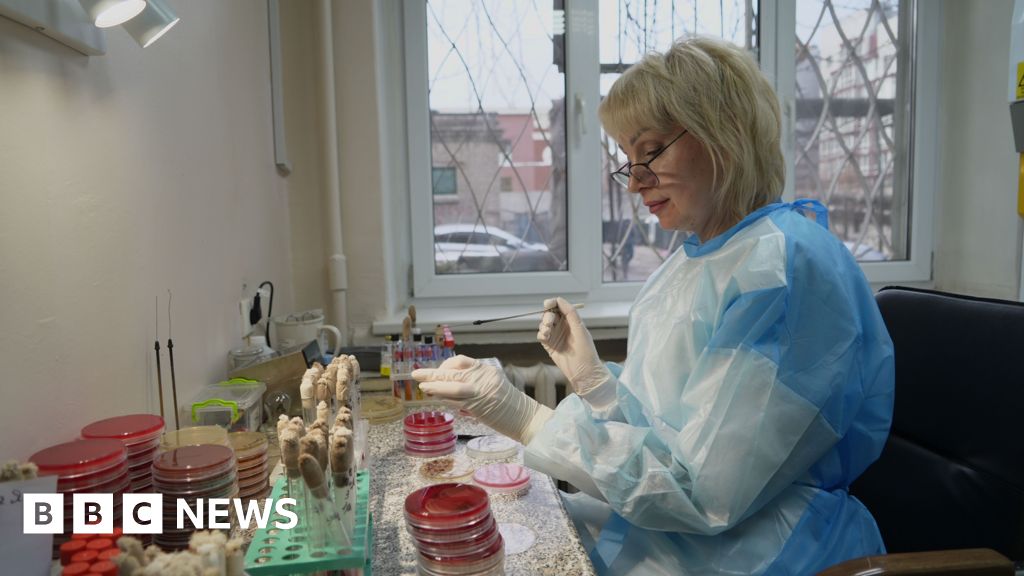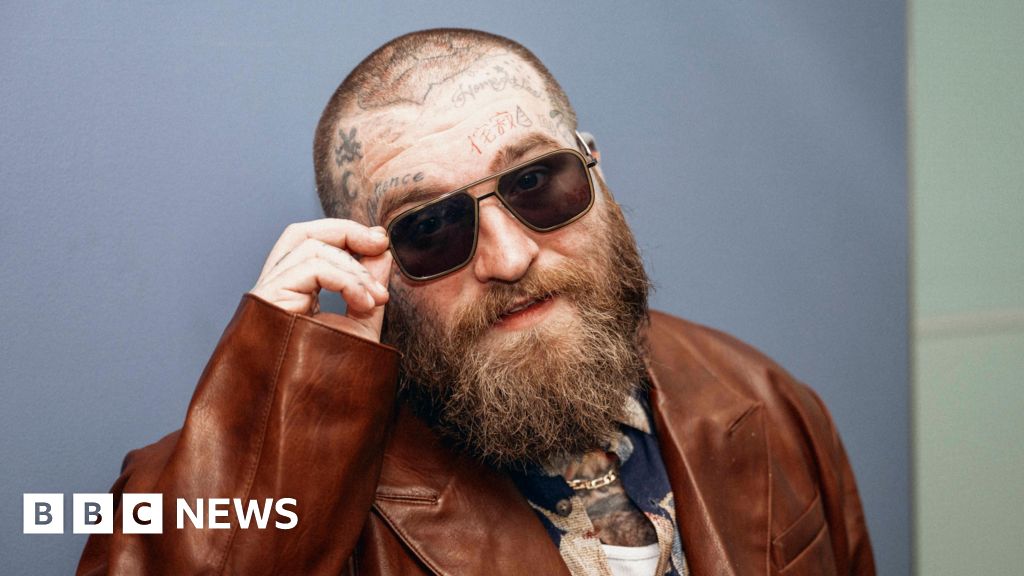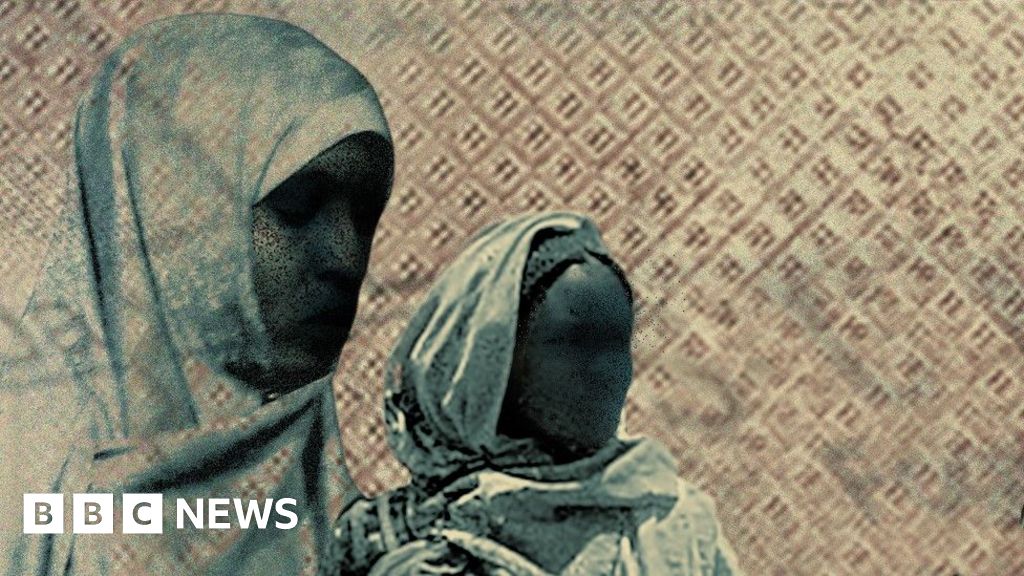ARTICLE AD BOX
 Image source, Getty Images
Image source, Getty Images
Justice officials in Spain have been left red-faced after accidentally releasing a billionaire Dutch drug lord from prison in a bureaucratic mix-up.
Karim Bouyakhrichan, allegedly a leader of the Mocro Maffia, was arrested in Marbella in January after a five-year money-laundering investigation.
But he was accidentally released amid confusion over a Dutch extradition request, before vanishing this month.
Spanish authorities remain confident the alleged cartel chief will be found.
Speaking to reporters on Tuesday, Justice Minister Félix Bolaños conceded that the escape was "worrying news", but insisted that security forces "will hand this person over to justice as soon as possible".
The Mocro Maffia refers to several of Europe's largest cocaine trafficking cartels, and is believed to have smuggled billions of euros worth of the drug from South America into the EU over the past 15 years.
They are said to use the huge ports in Amsterdam and Rotterdam to move cocaine around the continent, while directing money-laundering operations across Europe, the Middle East and Morocco.
Media in the Netherlands have also linked the cartels to threats made against the heir to the Dutch throne, Princess Amalia. It was revealed last week that kidnapping threats from the Netherlands' organised crime world had forced the crown princess to live in Spain for at least a year.
Mr Bouyakhrichan - also known as Taxi - was arrested in January alongside five other men after being accused of laundering money through the purchase of 172 properties in Spain worth over €50m (£42.9m).
The 46-year-old was one of the most wanted criminals in Europe and had been hunted by Interpol for at least five years. His brother, Samir, is believed to have founded one arm of Mocro Maffia - a Dutch-Moroccan outfit based around the Netherlands and Belgium - before being gunned down in 2014.
Mr Bouyakhrichan is alleged to have taken over control of his brother's empire after his death. His arrest this year is believed to have calmed a power struggle between competing organised crime factions, which had seen several men killed.
Upon learning of Mr Bouyakhrichan's detention, Dutch authorities filed an extradition request which was initially approved by a national court in Madrid.
However, local officials in Malaga - where the cartel chief was being held - insisted that he face charges in Spain. Domestic media reported that the national court in Madrid subsequently overruled the decision.
On 22 February, the Malaga court accepted an appeal lodged by Mr Bouyakhrichan's defence team and ordered his release pending extradition if he paid a €50,000 (£43,000) bail bond.
Spanish outlet El Pais reported that judges accepted that there was a possibility that the cartel chief could flee the country, but argued that "less burdensome" measures - including forcing him to surrender his passport and an obligation to report to court every 15 days - would be sufficient.
The paper added that Mr Bouyakhrichan reported to courts regularly until 1 April, after which he disappeared.
Minister Bolaños refused to comment on the bureaucratic error on Tuesday when questioned by reporters.
Vincent Veenman, a spokesman at the Dutch public prosecutor's office in The Hague, said it was "unknown" why Mr Bouyakhrichan had been released from prison.
But he insisted that cooperation with the Spanish justice system was "generally good", adding that "dozens of suspects are handed over every year".

 8 months ago
49
8 months ago
49








 English (US) ·
English (US) ·